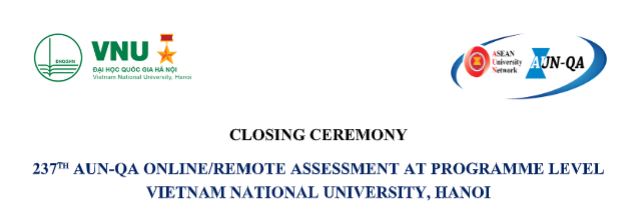On October 08, 2021, Vietnam National University, Hanoi organized the Closing Ceremony for the 237th AUN-QA Online/Remote Assessment at Programme Level. There are 04 programmes being assessed this time: Master’s programme of Environmental Engineering of VNU Vietnam Japan University and 03 other undergraduate programmes of VNU University of Science. During the ceremony, the assessors presented some key results of the assessment of the programmes, strengths and areas of improvements.
Attending the closing ceremony were Prof. Dr. Suzeini Binti Abd Halim, AUN-QA Chief Assessor, and Dr. Yu Un Oppusunggu, AUN-QA representative. Meanwhile from VNU side, Vice President Pham Bao Son and representatives of VNU Office, functional departments, Institute of Quality Assurance, Rectorate Boards of Vietnam Japan University and University of Science and staffs of four study programmes being assessed this time.
.jpg) Photo of the closing ceremony of the AUN-QA visit at VNU (VNU Media)
Photo of the closing ceremony of the AUN-QA visit at VNU (VNU Media)
At the closing ceremony, AUN-QA’s assessment team presented preliminary comments MEE with remarkable strengths:
- This is a programme in Vietnam Japan University which is a collaboration between the two governments of Vietnam and Japan.
- The programme provides learners the expected learning outcomes in three areas of Knowledge, Skills and Attitude which are aligned with the University’s Mission and Vision.
- The programme covers theory and field practice as well as learning opportunities outside campus such as a internship in Japan, industries and universities.
- Teaching learning activities are well organized with supports from Jica experts.
- Educational Philosophy of Liberal arts and the slogan Meet the social requirements toward sustainable development serve as the spirit of the programme.
- The programme has strong resources with a lot of supports and partnerships i) with an international academic staff including Vietnamese and Japanese who support students in their courses internship and thesis; ii) with Japanese universities especially The University of Tokyo and Ritsumeikan University which contributes to the program development, teaching and learning activities, and provides access to the laboratories and libraries during internship; iii) with industries that provide students with relevant internship experience; iv) with JICA which provides access to Japanese academic staff, scholarships, facilities, Japanese industries in Japan and Vietnam, and other forms of support serving to enhance the education of students; v) from Vietnam government to have a certain level of freedom in offering the programme; vi) with membership in VNU helping students and academic staff to access VNU common sources like library and laboratories.
- The output of MEE programme is remarkable with almost 100% of pass rate in the last three cohorts.
- There is a general satisfaction among the internal and external stakeholders.
The assessors also provided recommendations on the areas of improvements in implementing the curriculum to meet the high demand of management skills and practical experience. Despite the disadvantages of a new programme in the new university which need time to gain the reputation and regconition from the society, despite the fluctuation in the trend of employment recently, people need to be well equipped with environmental knowledge for a sustainable world. With a small number of recruited students, the programme has still managed to choose the right ones. For the sustainable developments of the programme, it is needed to have more innovative ways of recruiting students to the programme. In the future, the programme also has to prepare a strategic plan to ensure its development with less reliance on the support from Japanese side.
–


